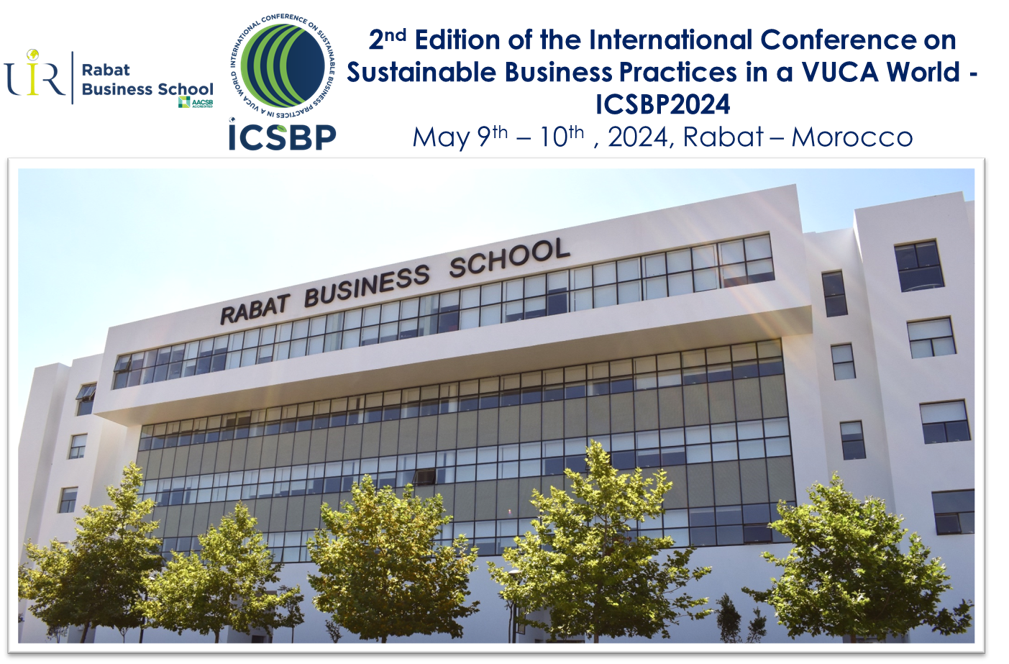
|
|
|
Human Resources & Organizational Behavior Tracks > Track 25: HRM and the New Challenges in Post-pandemic WorldTrack Chairs:
The 21st-century workplace has undergone rapid transformation due to unprecedented growth in digital technologies. With the advancement in social and digital technologies, organizational processes and the nature of work have become increasingly modular and decontextualized, heralding the "gig economy" (Corporaal et al., 2019). The gig economy has enabled the reconfiguration of menial and complex tasks into smaller manageable chunks that could be distributed among the external workforces (Lehdonvirta et al., 2019; Connelly et al., 2021). Coupled with this transformation, Human resource management (HRM) has evolved as an academic field and a profession on par with unexpected occurrences, including the global outbreak of the COVID-19 pandemic, and planned changes like the push for sustainable and decent work in line with the sustainable development goal-SGD 8 (Aust et al., 2020; Kreinin & Aigner, 2021). Gartner's recent survey of 800 human resource leaders across 60 countries revealed the need to prioritize leaders' and managers' effectiveness, employee experience, and future work initiatives (Gartner, 2023). Consistently, extant research has focused on HRM, employee well-being, and performance (or the lack thereof) among HRM actors (Van De Voorde et al., 2012) and, recently, the wider society and future generations (Aust et al., 2020), research shows certain factors that are currently influencing HRM/work practices and activities. In their comprehensive review of the literature, Hamouche (2021) and Piwowar-Sulej et al. (2022) identified interrelated trends such as technological transformation e.g., artificial intelligence; demographics e.g., aging, younger workforce; flexible work arrangement and employment including remote work, 4-day work, freelancing, and gig economy; sustainable and green work practices. This confluence of HR trends means that the field is experiencing change and disruption at an unprecedented scale. This conference track is aimed at exploring these contemporary HRM issues and welcomes submissions that are theoretical, conceptual, empirical, or case-based, and especially those that explore these trends from less researched viewpoints such as counter perspectives or dark sides, and the global south. Potential topics can resolve around;
References Aust, I., Matthews, B., & Muller-Camen, M. (2020). Common Good HRM: A paradigm shift in Sustainable HRM? Human Resource Management Review, 30(3), 100705. https://doi.org/10.1016/j.hrmr.2019.100705. Connelly, C.E., Fieseler, C., Cerne, M., Giessner, S.R., & Wong, S.I. (2021). Working in the digitized economy: HRM theory & practice, Human Resource Management Review, 31, https://doi.org/10.1016/j.hrmr.2020.100762 Corporaal, G. F., Sessions, H., Jarvenpaa, S., Levina, N., Ashford, S. J., Caza, B. B., ... Zalmanson, L. (2019). Changing models of work in the digital platform economy. Academy of Management Proceedings, 2019(1) Retrieved from https://journals.aom.org/doi/abs/10.5465/AMBPP.2019.12309symposium. Gartner (2023) Gartner for HR: Top 5 Priorities for HR Leaders in 2023, Retrieved from https://emtemp.gcom.cloud/ngw/globalassets/en/human-resources/documents/trends/hr-top-priorities-2023-ebook.pdf Hamouche, S. (2021). Human Resource Management and the COVID-19 Crisis: implications, challenges, opportunities, and Future Organizational Directions. Journal of Management & Organization, 1(1), 1–16. https://doi.org/10.1017/jmo.2021.15 Lehdonvirta, V., Kässi, O., Hjorth, I., Barnard, H., & Graham, M. (2019). The global platform economy: A new offshoring institution enabling emerging-economy microproviders. Journal of Management, 45(2), 567–599. Kreinin, H., & Aigner, E. (2021). From "Decent work and economic growth" to "Sustainable work and economic degrowth": a new framework for SDG 8. Empirica, 49. https://doi.org/10.1007/s10663-021-09526-5 Piwowar-Sulej, K., Wawak, S., Tyrańska, M., Zakrzewska, M., Jarosz, S., & Sołtysik, M. (2022). Research trends in human resource management. A text-mining-based literature review. International Journal of Manpower. https://doi.org/10.1108/ijm-03-2021-0183 Van De Voorde, K., Paauwe, J., & Van Veldhoven, M. (2012). Employee Well-being and the HRM-Organizational Performance Relationship: A Review of Quantitative Studies. International Journal of Management Reviews, 14(4), 391–407. https://doi.org/10.1111/j.1468-2370.2011.00322.x |

